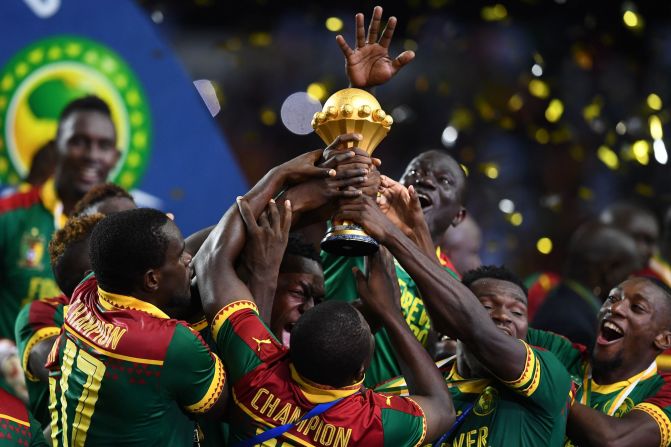
Stage to a plethora of the sport's most talented players, The Africa Cup of Nations (AFCON) represents the pinnacle of men's football on the continent. Ahead of its 34th edition, in Ivory Coast, look through the gallery to see photos of some of the competition's most memorable moments. Pictured, Cameroon players celebrate their triumph in 2017.
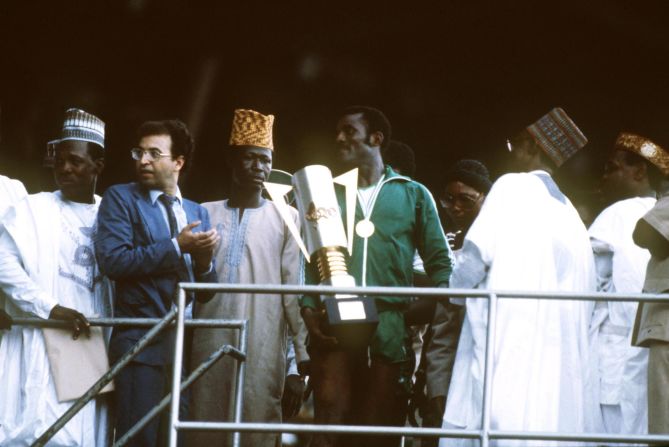
Though the inaugural tournament in 1957 featured just three teams (Egypt, Ethiopia and Sudan), eight sides made up the competition by the 12th edition in Nigeria, 1980. Led by captain Christian Chukwu, pictured with the trophy in hand, the hosts beat Algeria 3-0 to clinch their first AFCON title in style.
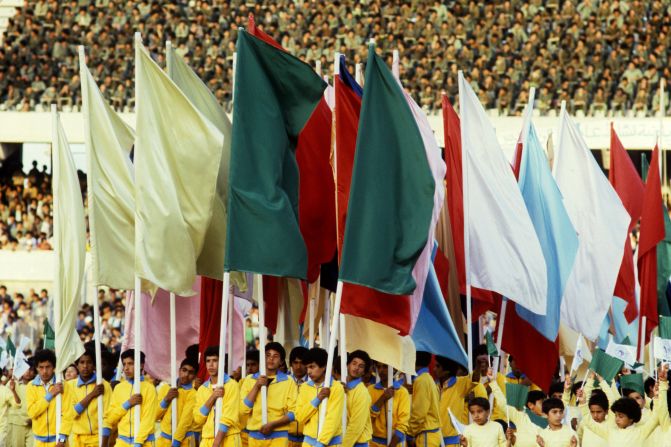
Libya's dream of hosting the tournament for the first in its history ended in heartbreak in 1982. Having reached the final in Tripoli, the Mediterranean Knights suffered a 7-6 loss on penalties after a 1-1 draw with Ghana. They have not reached the tournament's final four since.
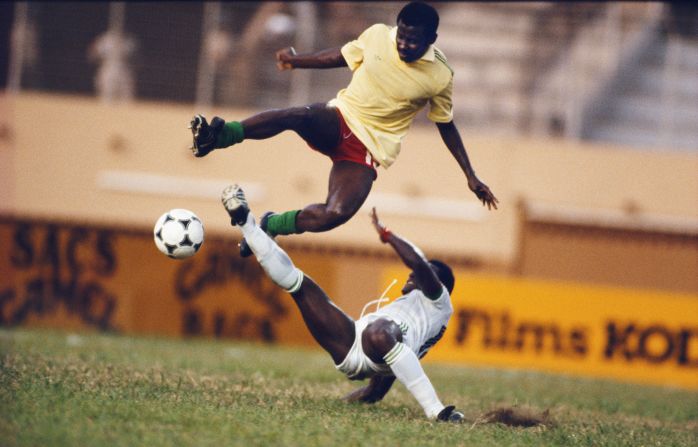
Cameroon's Francois N'doumbe hurdles a robust challenge from Pascal Miezen, midfielder for competition hosts Ivory Coast in 1984. N'doumbe and the Indomitable Lions lived up to their nickname at the tournament, condemning the hosts to a group stage exit before going on to beat Nigeria 3-1 in the final to claim the first of their five AFCON crowns.
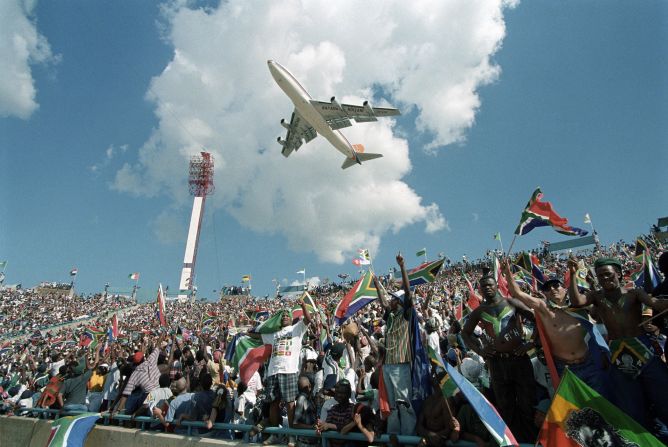
South Africa was never expected to stage AFCON 1996, let alone win it. Assigned hosting duties after original organizers Kenya were stripped of the role due to inadequate preparations, a fairytale run saw "Bafana Bafana," as the national team is known, walk out in front of 80,000 spectators at Soccer City, Johannesburg, for the final against Tunisia.
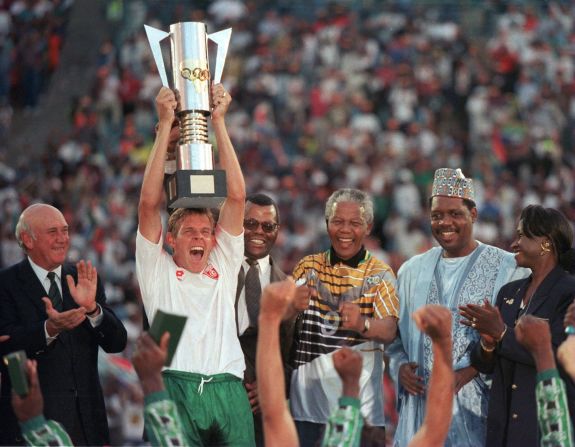
A second-half brace from Mark Williams fired South Africa to a famous 2-0 victory in the 1996 final, allowing captain Neil Hovey -- pictured here along with dignitaries including President Nelson Mandela -- to hoist aloft the country's sole AFCON trophy to date. Arriving just eight months on from the country's legendary Rugby World Cup win on home soil, it sealed another famous sporting achievement for post-apartheid South Africa.
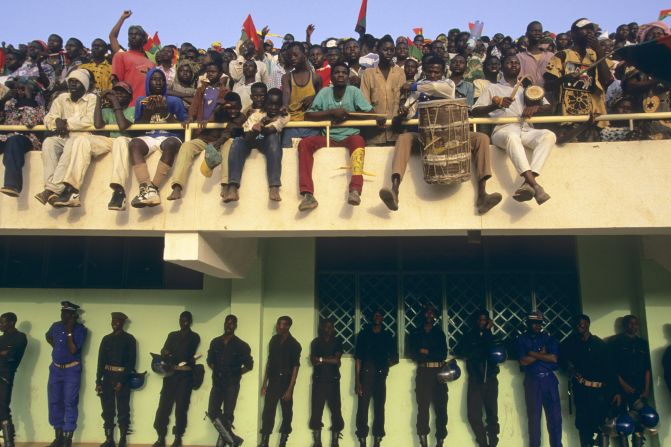
South Africa came within 90 minutes of defending its title in Burkina Faso two years later, but fell 2-0 in the final to Egypt, which claimed its fourth AFCON title.
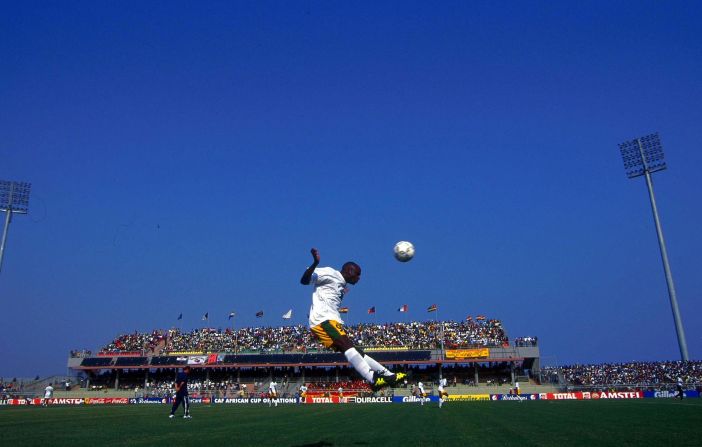
2000 marked the first time AFCON was hosted by two countries -- Nigeria and Ghana. Ghana, shown warming up before a group match against Togo, were knocked out in the quarter finals by South Africa, who were in turn beaten by Nigeria in the semi-finals.
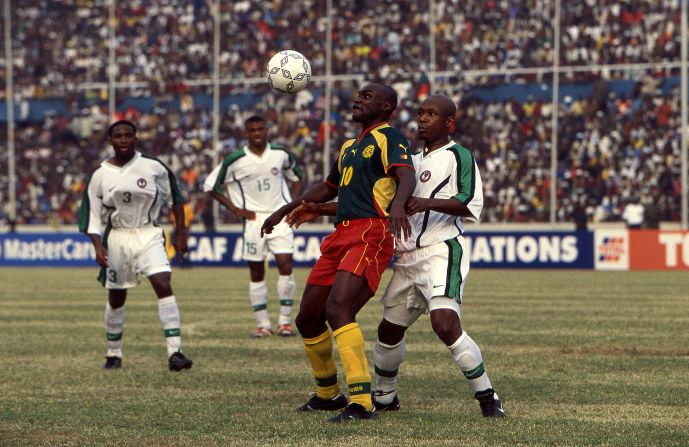
Samuel Eto'o may well be heralded as Cameroon's -- and possibly even Africa's -- greatest ever player, but strike partner Patrick M'Boma, pictured, played an even more pivotal role in the country's dramatic final triumph over Nigeria in 2000. Both scored in the 2-2 draw, but with Eto'o substituted off during regular time, M'Boma stayed on to convert the first penalty of a 4-3 shootout win, and was subsequently awarded African Footballer of the Year.
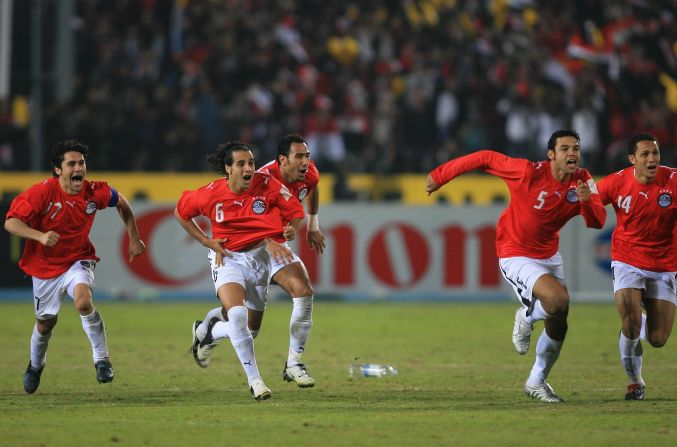
After triumphing in one of the competition's all-time great penalty shootouts at the 2006 AFCON quarter-final stage -- beating Cameroon in a 12-11 epic -- Ivory Coast incurred the wrath of the spot kick gods in the final. The Elephants lost 4-2 on penalties to Egypt following a goalless draw as the hosts claimed their fifth AFCON win.
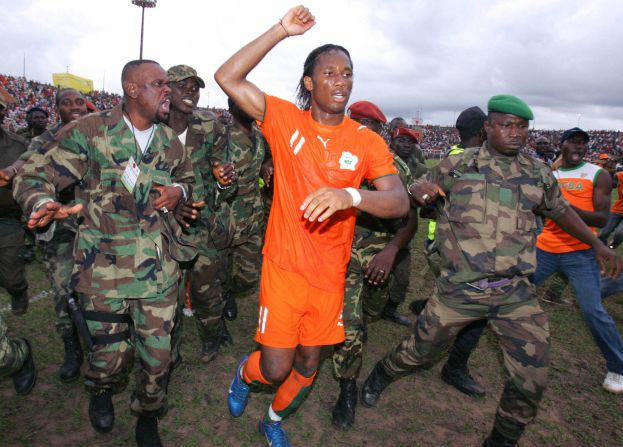
Chelsea legend Didier Drogba was center-stage again for entirely different reasons during the AFCON qualifying stages in 2007. Credited with playing a role in helping to end Ivory Coast's bloody civil war, pictures of the striker being escorted off the pitch by Ivorian rebel soldiers moments after scoring the final goal in a 5-0 win over Madagascar in Bouake -- the base of the rebellion -- symbolized his unifying impact.
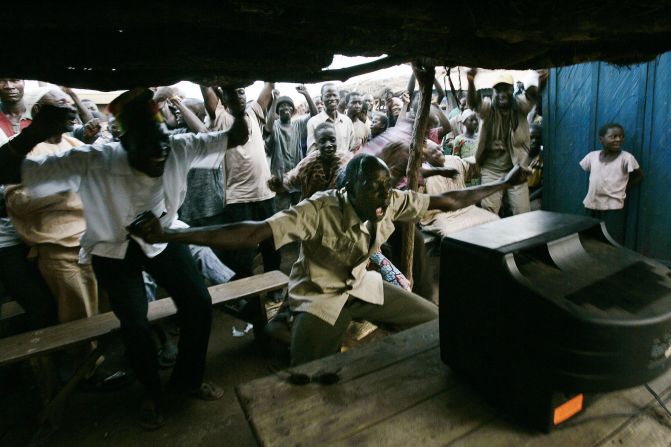
Ghana buzzed with excitement after a late goal from striker Manuel Agogo sent the hosts into the semi-final in 2008, yet a subsequent 1-0 defeat to Cameroon would deny the Black Stars their dreams of a third AFCON win on home ground.
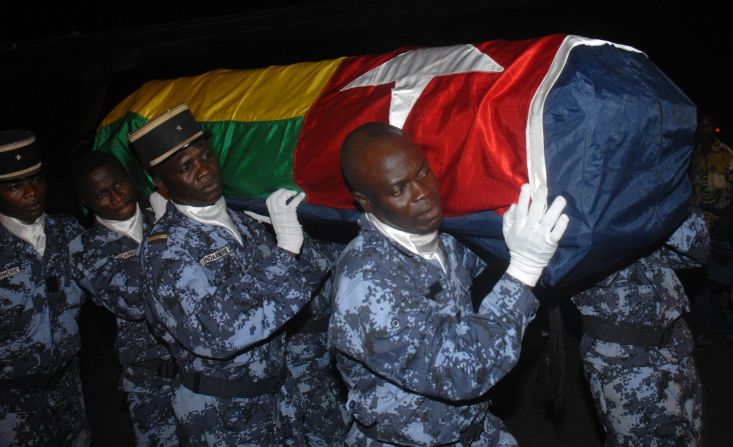
The lead up to AFCON 2010 in Angola was marked by tragedy when a bus transporting the Togo team was fired on with machine guns in a terrorist attack, killing three and leaving at least seven others wounded. Despite the players' wishes, the Togolese government ordered the team to withdraw, leading to a two-tournament suspension from The Confederation of African Football (CAF). The ban was lifted a few months later following an appeal from Togo to the Court of Arbitration for Sport.
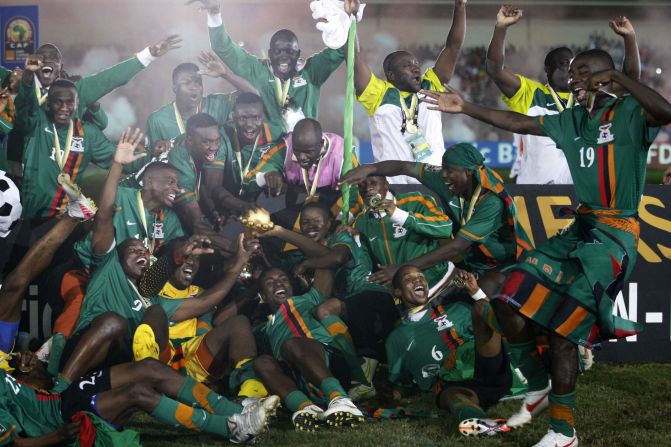
After two previous final defeats, Zambia finally clinched their first AFCON title in fairytale fashion at the 2012 tournament in Gabon, defeating Ivory Coast in a nail-biting penalty shoot-out in Libreville. Head coach Herve Renard dedicated the win to the victims of the plane crash that killed the team's coach and 18 squad members shortly after taking off from Libreville in 1993.
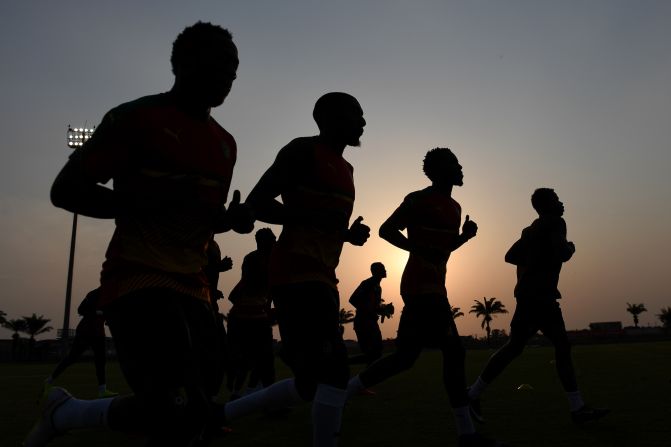
Cameroonian players warm up ahead of their 2017 final against Egypt in Libreville. Despite eight of their star players refusing Belgian coach Hugo Broos' call up to the squad for the tournament, the Indomitable Lions defied the odds, as Vincent Aboubakar's late winner completed a 2-1 comeback and clinched a fifth AFCON title.
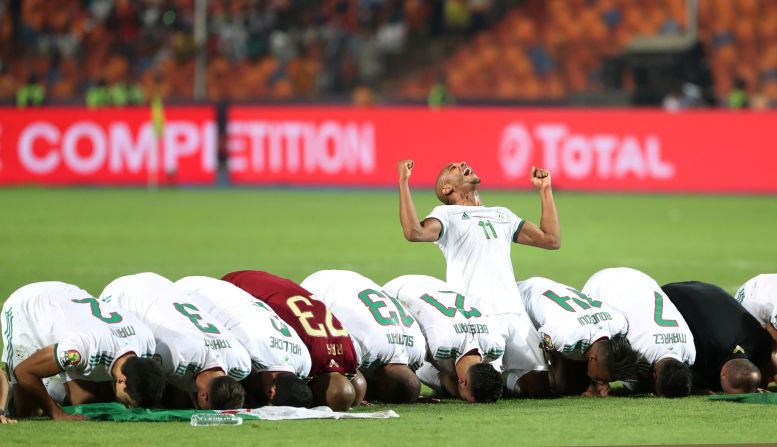
Yacine Brahimi and his teammates celebrated Algeria's second-ever AFCON win in 2019, as Baghdad Bounedjah's early deflected goal - Algeria's only shot of the game - was enough to secure a 1-0 victory over Senegal in Cairo, Egypt.
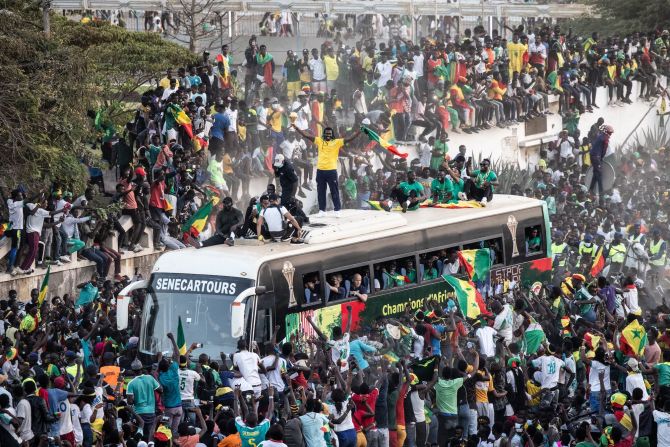
Yet Senegal exorcised the demons of that painful loss on the first attempt at the pandemic-delayed 2022 tournament in Cameroon, defeating Egypt on penalties following a goalless draw -- and subsequently parading the country's first ever AFCON trophy through the streets of Dakar.
